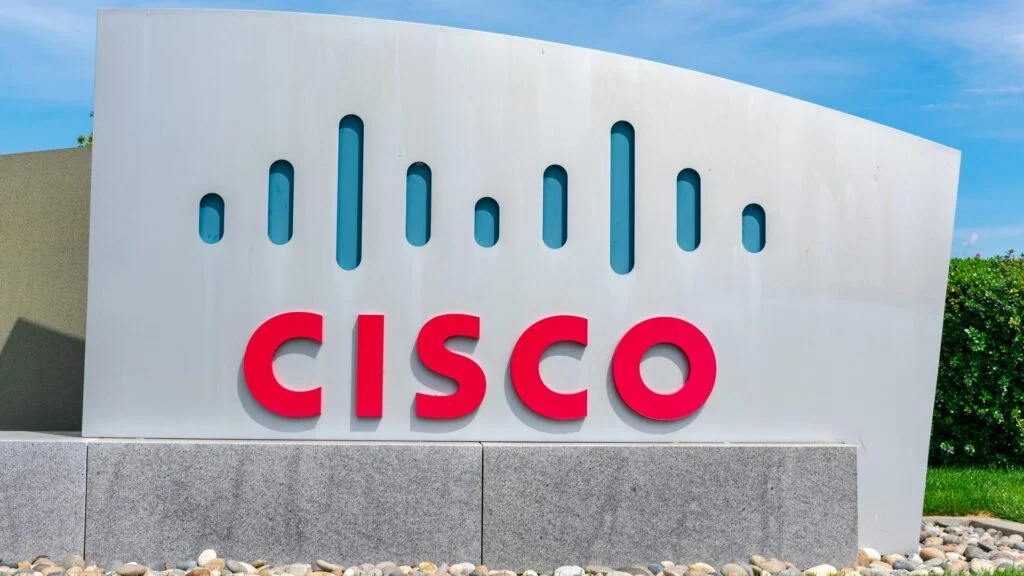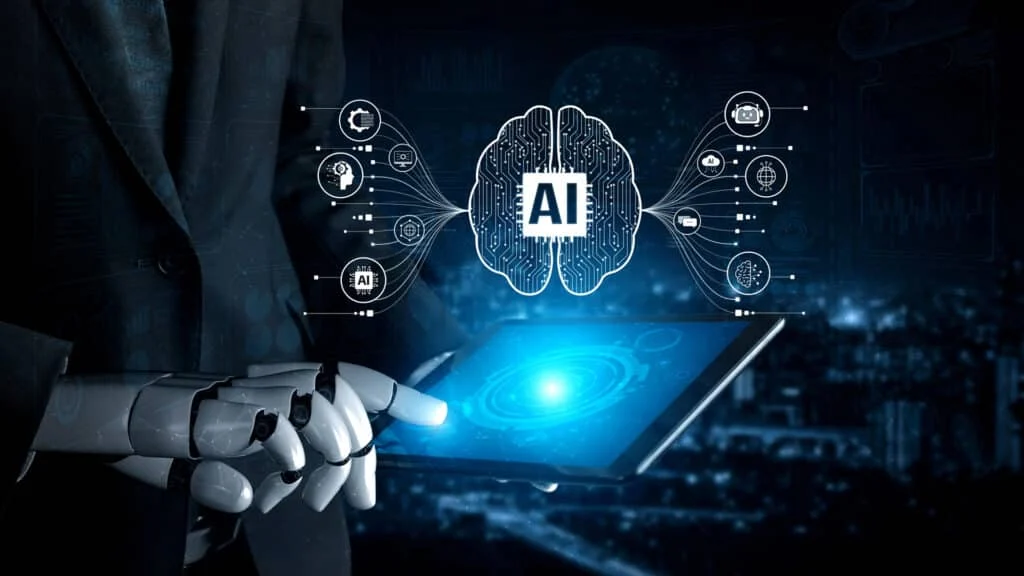How do you build an IT organization that’s truly resilient & ready for anything – from unexpected retirements to the rapid integration of AI?
Join hosts Greg Lotko, SVP & GM, Mainframe Software Division, at Broadcom, and Daniel Newman, CEO at The Futurum for a conversation with Bola Rotibi, Chief of Enterprise Research at CCS Insight. They explore the crucial topics of succession planning and strategic IT investment, and how these areas are key to bolstering organizational resiliency. This episode of The Main Scoop isn’t just about technology – it narrows in on the human element, the evolving workforce, and how we can prepare for a future shaped by AI.
Key takeaways include:
🔹The Human Resiliency Mandate for IT Operations: Explore how viewing succession planning as “human resiliency” is as crucial as system redundancy for ensuring continuous, robust IT operations, especially within critical mainframe environments.
🔹Navigating Generational Shifts in Tech Leadership: Discover how the evolving demographics of senior IT leaders, and the rise of Millennials in leadership, are reshaping perspectives on technology strategy, risk management, and the crucial need to bridge generational knowledge gaps.
🔹“Two in a Box” & Bridging the Skill Divide: Understand the innovative “two in a box” approach to knowledge transfer, effectively pairing seasoned mainframe experts with emerging talent to foster cross-generational collaboration and accelerate skill development.
🔹Strategic Investment in Workforce Development as Retention: Learn why prioritizing training and continuous learning is not just an expense but a vital strategic investment that directly impacts employee engagement, retention, and the long-term sustainability of an organization’s most valuable asset: its people.
Get more information on the Mainframe Talent Succession Playbook.
Watch the full video at Six Five Media, and be sure to subscribe to our YouTube channel, so you never miss an episode.
Or listen to the audio here:
Disclaimer: The Main Scoop is for information and entertainment purposes only. Over the course of this webcast, we may talk about companies that are publicly traded, and we may even reference that fact and their equity share price, but please do not take anything that we say as a recommendation about what you should do with your investment dollars. We are not investment advisors, and we ask that you do not treat us as such.
Transcript:
Greg Lotko: Hey, folks, welcome to the next episode of the Main Scoop. I’m Greg Lotko and joining me today is my co host, Dan Newman. Good to see you, Dan.
Daniel Newman: Greg, it’s good to be back.
Greg Lotko: All right, low five. There we go. All right. In our conversation today, we’re talking about bolstering workforce resiliency and succession planning. So we touched on skills before, but focusing on succession planning means you’re really thinking about where your organization’s going. You’re thinking about the demographics of the people that you have. You’re not just waiting for somebody to tell you they’re retiring and they’re going somewhere else. But you’ve got a plan, you’ve got a methodical approach.
Daniel Newman: Yeah, let’s be pretty candid, Greg. We’re in a very interesting inflection as it comes to business, technology, IT. We’ve got probably the fastest revolution we’ve seen. You know, people love to talk about the fourth Industrial and the fifth Industrial Revolution. And you and I love, on this show, we like to kind of, you know, we have varying opinions on the spectrum of how fast AI is accelerating, how much it’s. But I think we all agree if you even just go back to two, two and a half years ago to that first sort of chat GPT moment to now, how fast it’s proliferated. We went from, oh my gosh, this thing can sort of give us a contextual answer to now we’re hearing about agents that can run, they can do work. And by the way, for the first time in several industrial revolutions, we’re hearing about a workforce being potentially impacted by technology that hits the white collar. Whereas before, it’s always been like the assembly line is going to get disrupted or robots are going to fill our orders from Amazon. Now we’re hearing like they’re going to do all the marketing that we used to do. Yeah, but we’re hearing that changing the workforce.
Greg Lotko: But the reality is, if you think about history, every time new things have happened with technology, not even just since computer technology, that technology has taken the easier tasks, the more rote tasks, the repetitive tasks away from humans, from people. And workers have had to upskill to move up the food chain. So do we really think it’s that much different or are these agents more like the Matrix?
Daniel Newman: Well, I think the world is sort of trying to discern this right now of whether or not this inflection is different. Because what you said is something I like to say, which we sometimes agree with, sometimes we don’t. But every Industrial Revolution has created more, not less, jobs.
Greg Lotko: So joining us today we have Bola Rotibi. She is the Chief of Enterprise Research at CCS Insight. Welcome to the show.
Bola Rotibi: Thank you. Thank you. Thank you for inviting me.
Greg Lotko: Pleasure to have you here. So you’ve heard us kind of talking a bit about sustainable workforces and succession planning. Obviously, where the world’s going with AI has an impact on that. But we have to balance two things. We have to balance, I think training the resource on the right technologies to keep a space going, thriving, producing. But we also have to recognize AI is not going to do everything. So you’ve done some studying of building a sustainable workforce around the mainframe?
Bola Rotibi: Absolutely. The thing about it from the succession planning is that. So let’s kind of take the technology out of this because ultimately, succession planning is about people. It’s about sort of managing the fact that you’ve got people who are able to kind of like cross skills. Right. Look at different types of technology. And it’s about how they are, the mindset. It’s about making sure that you have resiliency and redundancy. The challenge that we always have is that we talk about infrastructure. Yeah. Sort of like on a technical level. And we think, oh, operations, we need to have redundant, redundant systems. And we think about the Matrix mainframe being this kind of highly utilized.
Greg Lotko: I think about the Matrix too.
Bola Rotibi: Yeah, well, we all think about the Matrix now on this, we all think about the Matrix and the mainframe. But yeah, the mainframe is highly utilized. And I think sometimes people think, oh, this great platform, it’s just running in the background and it’s doing what it’s doing and it’s doing it well.
Greg Lotko: But it’s not without people, it’s not without care and feeding.
Bola Rotibi: It is. Absolutely. And the fact is that the really good organizations start to think about this in a really structured way, because at the end of the day, in the same way that you have to have resilience of some sort of systems, you have to have human resilience. I mean, what if somebody kind of sort of retires? What if somebody, you know, something else happens?
Daniel Newman: So in your research that you focused quite a bit, it seems like, on sort of how they’re thinking about the technology, things like repatriating workloads, like where we started here on AI. But you also looked across generations.
Bola Rotibi: Yes.
Daniel Newman: Which is very interesting. And Greg, you know, I wrote a book called the Millennial CEO.
Greg Lotko: I did not.
Daniel Newman: So we’re just going to make sure about that. But anyways, what are you going to say?
Bola Rotibi: I was going to say the millennials are now in, they’re in, they’re in the ascendancy. Exactly. We’ve done some other research which actually when we look at the IT kind of senior IT leadership and we found out that actually when we look at the breakdown, something like 28% of Gen X, which is kind of like the 55 to kind of 65, and then the millennials, which are 60% of the senior leaders now. So they’re the ones actually in charge of the operational side. That’s like the Gen Z, which are kind of like, I think after 1997, they’re the ones who are like the 14%. 12%. 12% were Gen Z. So they’re kind of starting to come in. They’re kind of more, they’re progressive, they want to do some things, you know, sort of, they have vision, but at the same time they don’t necessarily have all the budgetary powers. That’s still in the hands of Gen X. They’re kind of thinking about compliance and risk. And Millennials are really the kind of day to day operations. So I think when you start thinking about those kinds of things like the demographics of the skill, you know, the leadership, that’s what you need to start thinking about. When you think about succession planning.
Greg Lotko: So that definitely impacts their perspective on succession planning. Right. Because they’re, they don’t have the experience of having to go through those transitions and they’re maybe focused on it from one aspect. Operational risk versus thinking about the longer term.
Bola Rotibi: Absolutely. And I think the thing is, the challenge that a lot of organizations will have is maybe capturing all that skills and all that knowledge and experience and making sure that that’s still available for the generations as they grow, you know, as they kind of evolve and yeah, sort of move out or move up and the other sections become the bigger. Because next, you know, today’s Gen Z is going to be tomorrow’s millennial.
Daniel Newman: Well, it is interesting to think that just, gosh, felt like five years ago that millennials were like this up and coming and now they’ve taken, you said.
Bola Rotibi: 60%, 60% in our survey. Yeah.
Daniel Newman: So in that survey though, so you have this interesting progression of this demographic, but from a technological standpoint, just a quick backup because what were some of the biggest things you’re seeing in terms of the progress, succession planning?
Bola Rotibi: Yeah, I think one of the things that we found was that we actually had some very common sort of concerns actually. In fact, I think the challenge that a lot of organizations have is that terminology.
Greg Lotko: So words matter how you say things. So you have to deliver the message in a way that people are going to be able to hear it.
Bola Rotibi: Absolutely. That is one of the things that’s actually really important. The other thing is really about having to organize how you organize people and having the fact that they didn’t have accountability, ownership, that was the other, the challenge that a lot of people have not having the ownership and sort of like who owns succession planning, who’s driving this? Is it HR? Is it IT?Is it senior leadership? Is it? So I think that’s one of the things and then really sort of like passing on skills, that was the other thing. So we had this kind of the really good guys or the companies that really sort of thought about this, had this notion of two in a box system. And that was really because a lot of people say, oh, there’s a lot of old people leaving sort of, you.
Greg Lotko: Know, so most people try to think outside the box. So they wanted to put two people.
Bola Rotibi: Two people in the box. But not just any two people, two types of people. Someone who’s a bit more experienced and someone who’s a junior coming up.
Greg Lotko: It’s a different perspective.
Bola Rotibi: Exactly. You’re cross pollinating ideas, experiences and making sure that what’s actually happening is that you’re transferring skill sets, you know, so and the thing is they were finding actually is that the more experienced sort of practitioners finding actually you know what I’m scaling my knowledge set, I’m actually passing on. And so therefore they feel that they’re actually engaged, and it’s really exciting. And then the younger people who are coming on, they’re learning something and they’re actually also passing on skills that they’re seeing as well. Like sort of like when we often see being able to use newer technologies, newer tools, for instance, like visual code as a solution or some of the open source tool set.
Greg Lotko: You kind of started by saying words matter, you gotta speak with clarity. But then you recognize that across the different generations they may not speak or see things the same or have the same experience. So you got two in a box which forces them to come together and start to be able to translate and interpret and talk to each other. And then you got to tools, right? And you’re looking at that as, you know, let’s have them use a common approach, a common tool set versus each bringing their own without the other understanding it.
Bola Rotibi: And the whole point is that really what you’re trying to do in all of this. Is that the big magical word that is? I would say it’s probably the most, the biggest R is resiliency. Right. Because we talk about resilience systems, we’re always thinking of either backups or making sure that if something goes wrong, there’s something else that will step in. We don’t talk about human resiliency. And that is one of the kind of important things that succession planning is really fundamental is based on is human resiliency as well as success, system resiliency, technology resiliency. And I think that is common.
Greg Lotko: Ground and the human resiliency there is from different perspectives. Right. I mean you have the people that are later into their career that you want them to still be there, still be going, still be passionate and put that passion into training the next generation or the newer to the platform and then you want the resiliency of that person newer coming in who maybe doesn’t know everything yet to realize, hey, I don’t know everything, but I’m learning something every day. So both sides need resiliency.
Daniel Newman: So I sense Bola that resilience is this thematic. Right. It kind of traverses technology, which has always been transformative. Yeah. But in the end, these companies that you’re talking to, they want answers, they want decisions. So from all the surveying you’re doing, you know you’ve come up with a succession plan.
Bola Rotibi: Yes.
Daniel Newman: Talk a little bit about how this sort of resilience feeds into this plan that you put together because I think all the listeners, customers out there probably want to, they want to hear a little bit about how to do this and what’s going to work.
Bola Rotibi: Absolutely. And the thing is, I wanted to say that sometimes when we sort of say, you know, succession, we think it’s going to be young people, the next generation, but actually it’s actually skill sets, different skill sets, people that you have inside your organization. And I think that’s the challenge is that people always think, oh, how are we going to get new people sort of equals, young people? No, what we don’t have, what many organizations don’t have an issue with or a problem is the people’s side. They have people all around their organization. They have people who are doing different technologies, who are different sorts of Linux players, they have cloud, their DBAs. And it’s really about thinking about succession is actually how do you make sure that your workforce works for you as an organization. And that is the resiliency that I’m talking about. So when we think about succession planning, how do you ensure that you bring in more different types of people around the organization, how do you identify them and how do you make sure that you are able to have them transition into sort of the technology of the mainframe? And I think that is really because at the end of the day they held a whole host of sort of organizational knowledge. You don’t want to lose that. But the fact is, and I think that’s, that’s one of the things that when we sort of ask organizations when they start thinking about it. So it’s first of all recognizing that your workforce, your workforce as an organization is your biggest asset. And basically they’ve got all of these people with lots and lots of skills and they know your knowledge of your organization. So the fact is, is that giving them an opening into other paths. And the thing is, we talk about the mainframe here, but this is succession planning for the IT organization. At the end of the day, this is not just about the mainframe. The mainframe is a first class citizen of the IT estate as is when we think about cloud, we think about on premises, we think about all the different things. And the point is for a lot of organizations, they want to make, you know, they want to take all of that with them. They want to make sure that they are getting the most of what they’ve invested in.
Greg Lotko: So you broadened that there and I want to broaden it a little bit more. So you’ve been an analyst for 25 years, you’ve been in the IT space for 35. Yes, we’ve all heard the phrase that history continues to repeat itself. And you talked about, you know, there’s generally good concepts or good approaches for succession planning. But I’m curious, in that 35 years, what patterns have you seen across the industry?
Bola Rotibi: Oh, what patterns? Good Lord. Well, the one big thing I would say is that its technology is an asset. That is the most important thing. It really is. But it’s the people aspect that is real, I can tell you that in all the jobs I have done and I’ve been an engineer and a developer and an analyst and I’ve spoken to lots of different organizations, you know, and successful ones and ones who haven’t been as successful. And one of the things that the common factor that goes into that is the fact that it’s people, it’s the human factor.
Greg Lotko: The successful ones realize the people are what create or use the technology to drive.
Bola Rotibi: And use that as an asset. And they mine from it and they have the right kind of training programs in place. Because the other thing is, let’s face it, when we think about the world today, you know, we’re in challenging times, macroeconomics and everything like that, so people are kind of looking after the pennies. And the first thing that whenever sort of says, oh, I’ve got a cup. What gets cut but training, first of all, because everyone’s like, oh, but the fact is, that training is really, really important. And in fact, actually one of the things I’ve seen over all that time, if you don’t train people, then they will leave because they actually want to go. No one wants to sit in a job where, A, there’s no training, B, I don’t have a community, there’s no prospects, you have no forward thinking, no career path for me. So actually all of those things.
Daniel Newman: No, I was going to say Bola. Have you ever seen, There’s a, it’s a, it’s a pretty classic leadership name, but it says, you know, the CFO walks into the CEO’s office, what if we, you know, invest and train all these people and they leave. And the CEO looks back and says, what if they don’t? What if we don’t train them and they stay?
Greg Lotko: You know, and I thought of something else. I thought of something else. Listening to this, with succession planning and, and we know AI is everywhere and I know you’re very bullish on using it in every way, in any way we can. I’m curious, relative to succession planning, if you ask an AI to do succession planning for itself, would it ever recommend replacing itself with a different AI? Or would the AI recommend you just scale it up more? But the reason this question occurs to me is we think about human evolution in business. Humans evolution more finitely in their career, right? And we know that the less successful people protect their knowledge. They don’t share it. They don’t want anybody else to understand how it is that they do what they do. And they tend not to advance, succeed or achieve. And we know that the ones who do are the ones who say, hey, I’m always trying to work myself out of a job. I want to make my job easier. I want to teach somebody else to do it more effectively and then I can go on to the next thing. And it makes me wonder,
Daniel Newman: Will Cloud35 recommend GPT4, right?
Greg Lotko: Or Will an AI say, hey, succession planning for me should be to replace me, or will the AI recommend that you invest in training, more training of the.
Daniel Newman: Technical answer I’d love to hear yours would be that, you know, you have both agent to agent protocols and you have mixtures of experts that would actually have some ability to understand what they’re good at. Do you have small models and larger models, models that are vertically cut or do specific things. So technically speaking, could a model recognize that there’s another model that could do something better? I’m imagining that’s probably being developed.
Greg Lotko: Could it? Or would it?
Daniel Newman: But would it?
Bola Rotibi: I mean, that depends on what kind of.
Daniel Newman: Does it open the door?
Bola Rotibi: Yeah, but it depends on what kind of construction. I mean, this is very esoterical conversation because I think, hold on, we are moving away from the human aspect because actually, at the end of the day you sort of say, well, you know, I need to train, you know, replace my job, train somebody who can do my job. But the fact is, what is the workforce, right? What do people really enjoy? You know, they enjoy imparting knowledge. You know, even when you think about developers, you know, even the developers with the egos, they just basically want to tell you, hey, this is what I’ve done. It’s great and it’s brilliant and they want followers. My point is, this is really about. Ultimately people want to share. You know, I don’t think, I don’t believe that. Yeah, you might get somebody who comes in and says, well, no, I just want to keep my, you know, because they’ve been taught that way. They’ve been, They’ve become that person because.
Greg Lotko: They saw the model.
Bola Rotibi: Yeah, exactly. Because the company has basically said, I’m going to reward you based on this. And that is not the kind of, you know, that’s not the kind of behavior that you want to really encourage. You want to encourage.
Greg Lotko: So the system and the environment has to reward and encourage the behavior to ensure you get the reaction.
Bola Rotibi: And you have to have the people who are committed at the top to say, you know what, I trust your workforce. I want the best for you, actually. Because actually I haven’t done the hours or the maths, how many times you spend at work. But the fact is, and also people want to come up with ideas and they want to see those ideas work. You know, they want to be part of something that’s successful. But also, even if it isn’t successful, they want to learn and then they want to go on and make it better. Now that is, you want to. That’s the mindset. But the organization is responsible for that mindset, that culture.
Greg Lotko: And you look at when you recruit, right, you can recruit for talent, you can recruit for skills. But the most successful people are when you’re aligning the culture of the person with the organization.
Daniel Newman: Bola. That was a really thought provoking conversation. Years of sitting on your side of the table and then of course sitting on this side of the table looking at sort of that human and technology aspect. And by the way, I think oftentimes the human part is a little underspoken. It’s underrepresented. And we find it in every study I’ve done. So it sounds like you could match this, is that companies move very quickly when they can get the people part right. Yeah. Now we probably all sit somewhere different at the end of this conversation, but it was very provocative and exactly how much the technology shift is going to change that. But I do believe, in the immediate future people are still incredibly critical. I think in the long term they will be important. I think there’s just a lot of unknowns as to the impact that AI will have. But I want to, you know, absolutely say thank you so much for being part of this episode of The Main Scoop. Great episode. We’ll make sure that in the show notes we put out some of that research so people can read the work that you’ve done and, you know, hopefully sometime in the near future we’ll get you back here on the Scoop.
Bola Rotibi: Thank you very much. Real pleasure, guys.
Greg Lotko: Awesome having you.
Bola Rotibi: Really, really enjoyed it.
Daniel Newman: And thank you everybody for tuning into this episode of The Main Scoop for Greg Lotko and myself. We appreciate it and we’ll see you again in an episode very soon.
Greg Lotko: See you next time.
Daniel Newman: Bye Bye.
Author Information
Daniel is the CEO of The Futurum Group. Living his life at the intersection of people and technology, Daniel works with the world’s largest technology brands exploring Digital Transformation and how it is influencing the enterprise.
From the leading edge of AI to global technology policy, Daniel makes the connections between business, people and tech that are required for companies to benefit most from their technology investments. Daniel is a top 5 globally ranked industry analyst and his ideas are regularly cited or shared in television appearances by CNBC, Bloomberg, Wall Street Journal and hundreds of other sites around the world.
A 7x Best-Selling Author including his most recent book “Human/Machine.” Daniel is also a Forbes and MarketWatch (Dow Jones) contributor.
An MBA and Former Graduate Adjunct Faculty, Daniel is an Austin Texas transplant after 40 years in Chicago. His speaking takes him around the world each year as he shares his vision of the role technology will play in our future.












